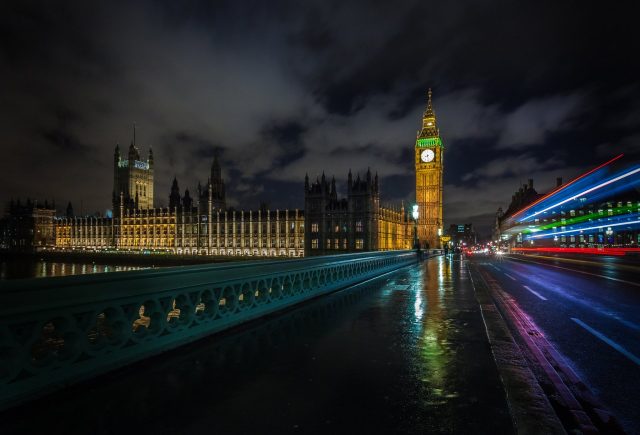
Fun fact – by 2050, approximately two-thirds of the world’s population will live in cities. Which is up from half right now. In order to accommodate all these people, it’s highly important for cities to prepare for the future. Whether this is through infrastructure improvements, technological innovation, policy-making, environmental protections or other forward-looking strategies. A report from AT Kearney, which is a global business-consulting firm, ranks 128 cities based on their projected levels of importance and competitiveness in the future. We are going to look at the top 10 cities in depth. Starting with 10. Moscow, Russia. Moscow catapulted onto the top 25 global cities list this year, rising 25 spots from the year prior. With all the news about Russia over the last year, this kind of makes me suspicious. Moscow saw incredible improvements in economics as a growth in foreign direct investment. Moscow has also seen some gains in terms of the quality of their bureaucracy. Recruiting women into political parties for example.

9. Stockholm, Sweden
In 2016, Sweden’s capital city saw improvements in every indicator of innovation. AT Kearney named Stockholm, the most populous city in the Nordic countries. They describe Stockholm as a leader in freedom of expression. The city is home to an advocacy organization, the Stockholm Center for Freedom, which promotes the rule of law and fundamental rights. This organization might not seem like much in terms of the future, but if you don’t live in a society where fundamental rights are taken seriously, how can you grow as a people? Governments that constantly tell society that someone isn’t good enough because of their skin color or their gender (for example) aren’t going to attract a diverse population. This won’t promote any kind of growth, let alone innovation because people will be afraid of speaking their mind.

8. Houston, United States
For the second year in a row, Houston was named a world leader in GDP per capita, which is an important factor in the report’s calculations of personal well-being. The Texas city has also seen a rise in the number of patents filed per capita, an indicator of growth in entrepreneurship. Not only that, but Houston is a fast-growing market for grocery stores. The population is increasing, which means that people are going ot need a place to shop. Several grocery store chains have started expanding into the suburbs of Houston. Which makes Houston a great city for the future, but a desirable one to live in now.

7. Munich, Germany
Munich may be known for its annual Oktoberfest celebration, but the German city is also a major tech hub in Europe. That’s because of its strengths in research and development and innovative networking systems. In 2015, Munich was home to nearly 100,000 startups. While I wasn’t able to find an updated number of startups, that figure was from 2015, so it could only have grown. If you do a Google search for startups + Munich, you will find several websites with this kind of information. This is definitely an indicator of why Munich has made this list.

6. Melbourne, Australia
For the second year in a row, AT Kearney gave Melbourne the title of world leader in personal well-being. That means Melbourne, the second largest city in Australia, is improving a combination of infrastructure, GDP per capita, and foreign direct investment faster than any other city on the planet. It also ranked highly in increases of environmental performance.

5. Boston, United States
According to AT Kearney’s calculations, entrepreneurship has flourished in Boston in recent years, though the city fell two spots from No. 3 in 2016. The historic city has a longstanding focus on biotech and some of the world’s best universities, including Harvard and MIT. Boston is attracting entrepreneurs for the following reasons:
- They are startup ready
- There are mentors everywhere, willing and able to help you succeed, and;
- Because big problems are solved before they become actual problems.

4. London, England
If you thought London was just about the Royal Family, then you were wrong. London held steady at No. 4 over the past year, thanks in part to its access to cultural experiences and workforce talent. London earned the top spot based on six metrics used in the report’s calculations, including the number of top global services firms, number of news agency bureaus, sporting events, international travelers, and international student population. London is also a fun city to visit, if you’re young and you enjoy depressing weather.

3. Paris, France
This one surprised me. Mostly because I think of Paris as this romantic city where people go to fall in love and eat amazing French pastries. But, Paris emerged as a challenger for major US cities in future importance and competitiveness, jumping 10 spots up from No. 13 in 2016. The French capital is increasing the number of business incubators it hosts and has had substantial growth in private investment from venture capital and private equity firms — both foreign and domestic. The fact that they are challenging the U.S. is very interesting to me. It signals a possibility that globally people aren’t happy with the U.S. and they are looking to do business elsewhere.

2. New York City, United States
Between 2016 and 2017, New York City held steady at No. 2 on this list. Considered a world center of fashion, finance, media, and technology, the city posted high scores in business activity, political engagement, and human capital. New York City also leads the pack in capital markets and local institutions with global reach. New York City being on the list doesn’t surprise me at all. There are so many people that live there, it’s a hotbed for new ideas and of course, money to back up those ideas. I am a bit surprised about the kind of technology opportunities there, but they exist.

1. San Francisco, United States
Finally, San Francisco. This is the seventh year that AT Kearney has released this type of ranking and given it’s proximity to Silicon Valley, this makes sense. San Francisco, the tech capital of the world, consistently tops the list because of its strength in innovation. San Francisco, located north of the Silicon Valley tech hub, is best positioned to attract and retain global capital, people, and ideas in the coming years, according to the report. The city saw increases in the number of patents per capita and business incubators launched. But the concentration of power and wealth has its downside: San Francisco often ranks as the most expensive real estate market in America, with many long-timers forced out as techies move in.



